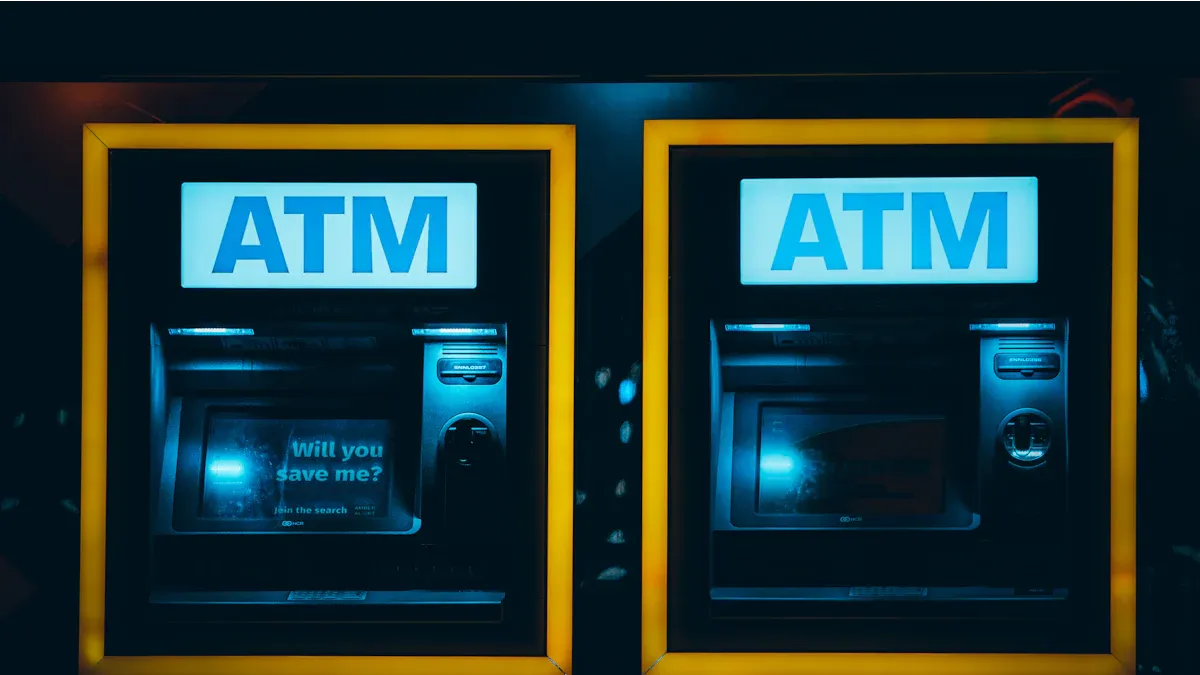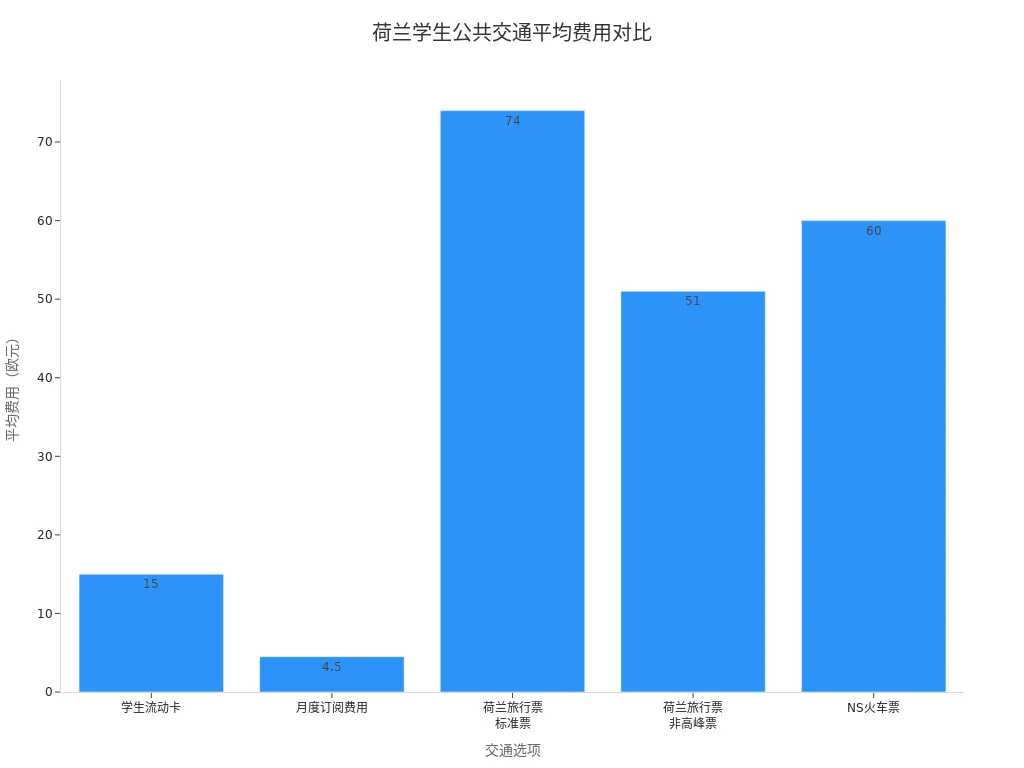- EasyCard
- Trade
- Help
- Announcement
- Academy
- SWIFT Code
- Iban Number
- Referral
- Customer Service
- Blog
- Creator
The Netherlands Study Abroad Resources: A Comprehensive Guide for International Students, from Remittance Services to Cultural Activities

Image Source: pexels
When studying in the Netherlands, you will encounter many practical resources. Financial management, living services, academic support, and cultural activities directly impact your adaptation process. The Netherlands currently has 128,000 international students, accounting for 16% of the total student population. By effectively utilizing Netherlands study resources, you can enhance your living efficiency and quickly integrate into the new environment.
| Number of International Students | Proportion of Total Students |
|---|---|
| 128,000 | 16% |
Key Points
- When choosing appropriate remittance services, pay attention to fees and exchange rates to ensure fund security and timely arrival.
- Participating in Dutch cultural activities and student associations can help you integrate faster and make friends.
- Applying to universities through the Studielink system simplifies the admission process and increases your chances of acceptance.
- During your studies in the Netherlands, it is essential to purchase health insurance to ensure your daily health needs are met.
- Actively engaging in part-time jobs and internships can help you gain work experience and enhance future employability.
Overview of Netherlands Study Resources
Netherlands study resources are diverse, covering your needs in finance, living, academics, and culture. These resources help you better adapt to the study and living environment in the Netherlands. Below, we will detail three key resource categories: remittance services, cultural activities, and the university application process.
Remittance Services
During your studies in the Netherlands, financial management is a top priority. You need secure and convenient remittance services to ensure timely payment of tuition and living expenses. The Netherlands has a well-developed banking system, and international students can choose from various remittance methods. You can transfer funds through bank wire transfers, third-party international remittance platforms, or credit card payments. Most banks support US dollar (USD) accounts, making it convenient to transfer money from China/mainland China to the Netherlands.
Tip: When selecting remittance services, pay attention to fees and exchange rates. Fees vary significantly between banks and platforms, and some banks offer fee waivers for students. You can consult banks in advance to understand detailed processes and required documents.
You can also open a student bank account in the Netherlands. This allows you to receive remittances from China/mainland China directly, facilitating daily expenses and tuition payments. Among Netherlands study resources, secure and reliable remittance services provide strong support for your financial transactions.
Cultural Activities
The Netherlands offers a vibrant array of cultural activities. You can participate in various student associations, festivals, and international exchange events. Many universities regularly host orientation events, cultural festivals, and themed lectures. Through these activities, you can meet friends from around the world, learn about different cultural backgrounds, and enhance your cross-cultural communication skills.
- You can join university international student organizations to participate in volunteer services and social practices.
- You can also attend local Dutch festivals such as King’s Day and Tulip Festival to deeply experience Dutch culture.
- University libraries and cultural centers regularly host art exhibitions and film screenings.
These cultural activities not only enrich your extracurricular life but also help you integrate into Dutch society more quickly. Among Netherlands study resources, cultural activities provide opportunities to showcase yourself and broaden your perspectives.
University Application Process
The university application process in the Netherlands is straightforward and easy for international students to navigate. You need to apply through a centralized system called Studielink. Simply create a Studielink account, fill in personal information, select your desired university and program, and submit application materials.
You can apply to multiple universities simultaneously through the Studielink system. Most schools will provide admission results within a specified timeframe. You also need to submit additional materials, such as transcripts and language test scores, as required by the university.
Dutch universities have a high acceptance rate for international students. Some universities have admission rates of 80%-90%, while most range between 50%-70%. You have a good chance of receiving an offer of admission.
| Resource Category | Description |
|---|---|
| Scholarships | Various scholarship options available for international students. |
| Accommodation Options | Information on different housing choices. |
| Application Process | Overview of the process for applying to Dutch universities. |
You can also apply for various scholarships. Some scholarships target specific disciplines or groups, while others are university-specific. You can choose suitable scholarship programs based on your qualifications to reduce financial pressure.
The diversity and efficiency of Netherlands study resources enable you to smoothly complete the application, enrollment, and adaptation processes.
Finance and Remittance

Image Source: pexels
During your studies in the Netherlands, you need to manage your finances efficiently and securely. Whether paying tuition, daily expenses, or receiving family remittances, understanding common remittance methods and bank account opening procedures is crucial. Properly utilizing Netherlands study resources can help you manage financial transactions smoothly and avoid unnecessary losses.
Remittance Methods
You can choose various methods to transfer funds from China/mainland China to the Netherlands. Common international remittance options include:
- XE Money Transfers: Offers transparent pricing and competitive exchange rates, suitable for tuition payments and family remittances.
- bunq: Supports international transactions in over 40 currencies with no hidden fees, convenient for cross-border financial management.
- Panda Remit: Known for fast transfers and transparent rates, ideal for students needing timely tuition payments.
You can also use Hong Kong-licensed banks for international remittances. These banks typically offer high security and compliance, suitable for large transfers. When choosing a remittance method, consider transfer speed, fees, and exchange rates. Some platforms support real-time exchange rate checks and fee calculators to help you make informed decisions.
Tip: Review the terms of service for each platform in advance to ensure fund security. Some banks and platforms offer fee waivers or exclusive discounts for students.
Bank Account Opening
Upon arriving in the Netherlands, you need to open a student bank account. This facilitates receiving remittances from China/mainland China, as well as daily expenses and tuition payments. You typically need to prepare the following documents:
- Valid passport
- University admission letter
- Proof of residence (e.g., rental contract)
- Student ID or proof of enrollment
Some banks support online account opening, making the process simple. You can choose Dutch local banks or Hong Kong-licensed banks with branches in the Netherlands. After opening an account, you will receive a bank card and online banking access for convenient financial management.
Note: Carefully review the bank’s fee structure, as some account types offer discounts for international students.
Tuition Payment
Dutch universities offer flexible tuition payment options for international students. You can choose to pay the full tuition before the academic year starts or pay in installments via direct debit (typically 5 to 10 installments). Non-EU students usually need to pay the full tuition before the start of each academic year. New students also need to pay the first year’s tuition and a non-refundable $500 USD visa deposit to confirm their enrollment and proceed with visa applications.
If your visa application is rejected or withdrawn, the university will refund the tuition deposit. You should closely monitor the university’s payment notices to avoid delays that could affect your academic progress.
- Full payment: Suitable for students with sufficient funds who want a simplified process.
- Installments: Ideal for students looking to spread out financial pressure.
Before paying tuition, verify the university’s official account details to avoid losses due to errors.
Fees and Exchange Rates
Fees and exchange rates vary significantly among remittance providers. When choosing a service, consider transfer fees, exchange rates, and the amount received.
By comparing fees and exchange rates, you can choose the most suitable remittance method. Some platforms offer real-time exchange rate locking to mitigate risks from exchange rate fluctuations.
Reminder: Before using any remittance service, carefully verify recipient information to ensure secure transactions.
Properly utilizing financial and remittance services among Netherlands study resources can make your study abroad experience smoother and more efficient.
Living Resources
Housing Information
Finding suitable accommodation is crucial when studying in the Netherlands. You can access reliable student housing information through the following channels:
- University Housing Portals: Most Dutch universities have dedicated housing bulletins or collaborate with student housing providers. You can visit university websites or contact the international student office for the latest listings.
- Online Platforms: HousingAnywhere, Kamernet, Nestpick, Pararius, and SSH Student Housing offer various options for student apartments, shared housing, and single rooms.
- Facebook Groups: Join housing groups for specific cities or international students to find roommates or contact landlords directly.
The average monthly rent for student accommodation in major Dutch cities is shown below (converted to USD):
| City | Average Rent (USD) |
|---|---|
| Amsterdam | $864–$1,296 |
| Rotterdam | $756–$1,188 |
| Utrecht | $648–$1,080 |
| Groningen | $432–$864 |
When choosing housing, pay attention to contract terms, deposit amounts, and facilities. Start searching a few months in advance to avoid peak season shortages.
Transportation
The Netherlands has a highly developed public transportation system. You can choose from trains, metros, buses, and bicycles. A student mobility card costs a one-time fee of about $16 USD, offering a 15% discount on all public transport. A monthly subscription costs around $5 USD, suitable for frequent travelers. A standard Dutch travel ticket costs about $80 USD, while an off-peak ticket is around $55 USD, allowing unlimited travel within a day. An NS train ticket from Amsterdam to Maastricht costs about $65 USD. You can also opt for a GVB Flex subscription, starting at about $1 USD per month, with varying discounts.

Dutch cities are bike-friendly. Renting or buying a student-specific bicycle is both eco-friendly and cost-effective.
Health Insurance
During your studies in the Netherlands, you must purchase appropriate health insurance. The table below lists the main insurance types and their conditions:
| Health Insurance Type | Applicable Conditions |
|---|---|
| Basic Insurance (basisverzekering) | Mandatory for all international students, recommended to be arranged within four months of arrival. |
| Dutch Public Health Insurance | Required for international students with part-time jobs or internships. |
| Home Country Insurance | Required for EU/EEA or Swiss students without work or internships. |
| Special Insurance Policy | Available for non-EU/EEA students without work or internships. |
| Private Insurance | Required for international students in Tilburg without paid internships or part-time jobs. |
When arranging insurance, prepare your passport, admission letter, and proof of residence. Prioritize plans covering outpatient and emergency care to meet daily health needs.
Shopping and Dining
While living in the Netherlands, you can easily find supermarkets, convenience stores, and various restaurants. Large supermarkets like Albert Heijn, Jumbo, and Lidl are widely available with transparent pricing. You can buy fresh ingredients and cook to save money. Dutch restaurants offer diverse options, including Western, Asian, and fast food. Students often use online platforms and second-hand markets for purchasing daily necessities and furniture.
Plan your monthly budget carefully and prioritize cost-effective shopping channels. Use student discount cards to reduce daily expenses at select retailers.
Academic Support
University Resources
At Dutch universities, you can access a variety of official academic support. Universities typically offer orientation programs and academic advising for international students to help you adapt quickly. You can also participate in language courses and cultural activities to enhance your academic and cross-cultural communication skills. Many universities assist with housing and visa procedures to reduce your living stress.
- Orientation Programs: Help you understand the university environment and academic requirements.
- Academic Advising: Address questions about course selection and academic planning.
- Language Courses: Improve your English or Dutch proficiency.
- Cultural Activities: Enrich your extracurricular life and promote international exchange.
- Housing and Visa Assistance: Address practical issues for living in the Netherlands.
Proactively contact the international student office for the latest academic and living information.
Libraries
Dutch university libraries offer rich resources. You can borrow physical books, access electronic materials, and use academic journals and databases. Many libraries provide dedicated study spaces and group discussion rooms for international students. Self-service printing, copying, and scanning are also available. Some libraries host regular workshops on academic writing and information retrieval to enhance your research skills.
Make full use of library digital resources and online services to save time on research.
Academic Tutoring
You can access various academic tutoring services in the Netherlands. OnCampus Amsterdam offers high-quality university preparation programs designed for international students to transition smoothly into the Dutch higher education system. Private tutoring services in places like Leiden cover over 1,000 subjects to help you tackle academic challenges.
- University Preparation Programs: Systematically improve your academic foundation and study methods.
- Private Tutoring: Offers one-on-one or small group sessions to address specific subject difficulties.
Choose tutoring options based on your academic needs to improve performance.
Language Support
Dutch universities provide diverse language support services for non-Dutch-speaking students. You can select support plans based on your language proficiency. Universities group students and assign personalized learning plans with mentors to track progress and provide guidance.
| Language Support Service | Description |
|---|---|
| Support Plans | Universities create language learning plans to ensure academic success and campus integration. |
| Immersion Schools | Choose full-time immersion schools or language classes to rapidly improve language skills. |
| Extracurricular Activities | Participate in activities to practice language in real settings and enhance social skills. |
You can also opt for language transition schools (ISK), designed for students aged 12–18 with limited Dutch proficiency. Courses include Dutch, English, math, and biology to help you fully adapt to the Dutch learning and living environment.
Culture and Social Life

Image Source: pexels
Netherlands study resources not only help you address academic and living challenges but also offer rich cultural and social opportunities. By participating in student organizations, festivals, volunteer services, and cross-cultural exchange programs, you can quickly integrate into Dutch society and make friends from around the world.
Student Organizations
You can join various student organizations designed for international students in the Netherlands. These organizations provide social, cultural, and academic support. Common international student organizations include:
- African Heritage Student Association (ASAH): Represents and supports students of African descent.
- Chinese Student Association (CSA): Organizes events related to Chinese business and culture, one of the largest multicultural student associations.
- Dutch Caribbean Association (DCA): Promotes social unity.
- Erasmus Multicultural Association (EMA): Coordinates nine cultural and social associations to promote diversity and inclusion.
- Erasmus Student Network (ESN): The largest international student organization, enhancing your study abroad experience.
- Eastern European Student Association (EESA), Indonesian Student Association Rotterdam (PPI), Surinamese Student Association (SSA), and others help students from diverse backgrounds adapt to Dutch life.
Choose organizations based on your interests and background to gain a sense of belonging and growth opportunities.
Festivals
The Netherlands hosts various festivals and cultural events annually, in which international students can actively participate. The table below highlights some major festivals:
| Festival Name | Time | Description |
|---|---|---|
| Holland Festival | June | Showcases theater, music, opera, and modern dance. |
| Netherlands Film Festival | September–October | Features Dutch films and awards the Golden Calf. |
| North Sea Jazz Festival | July | The world’s largest jazz festival, featuring renowned international musicians. |
| International Documentary Film Festival Amsterdam | November | Showcases innovative documentaries with debates and workshops. |
| King’s Day | April | Celebrates the king’s birthday with street parties and art performances. |
| Celebrate Tulip Day | January | Marks the start of tulip season with free tulip picking in city centers. |
Participating in these events helps you deeply understand Dutch culture and enrich your extracurricular life.
Volunteer Services
You can participate in various volunteer service projects in the Netherlands. Universities and student organizations often organize community service, environmental activities, and cultural promotion projects. Through volunteering, you can help others while improving communication and teamwork skills. Many international students make new friends and gain social experience through volunteering.
Actively participating in volunteer services makes your study abroad experience more meaningful and enhances personal competitiveness.
Cross-Cultural Exchange
Dutch universities offer diverse cross-cultural exchange programs for international students. You can participate in mandatory online Dutch language courses to improve your language skills in advance. Upon arrival, you will engage in intensive language training to reinforce your knowledge. By joining local activities and travel, you can deeply experience the Dutch lifestyle and learn about different cultural backgrounds.
Actively participating in cross-cultural exchange programs helps you adapt quickly, improving language and social skills.
Part-Time Jobs and Experience
Part-Time Opportunities
During your studies in the Netherlands, you can gain financial support and practical experience through part-time jobs. Dutch law allows international students to work part-time with clear regulations:
- If you are from a non-EU country, your employer must apply for a work permit on your behalf.
- You can work up to 16 hours per week or full-time during the summer months of June, July, and August.
- If you choose self-employment (e.g., freelancing), no work permit is required, and there are no work hour restrictions.
Employers will verify your residence status before hiring to ensure legal work eligibility. Internships typically do not require a work permit but must meet specific conditions.
You can find part-time opportunities in the following areas:
| Job Type | Description | Required Skills | Typical Hours |
|---|---|---|---|
| Catering Service | Serving customers in cafes or restaurants | Communication, customer service | 10–20 hours/week |
| Retail Assistant | Sales, restocking, customer service | Sales, attention to detail | 10–16 hours/week |
| Tutoring | Tutoring peers or younger students | Subject knowledge, teaching | 5–10 hours/week |
| Delivery Driver | Delivering food or packages | Navigation, time management | 10–15 hours/week |
| Research Assistant | Assisting professors or research departments | Research, academic skills | 8–12 hours/week |
| Freelancing | Design, writing, development, etc. | Professional skills | Flexible |
| Event Staff | Logistics for concerts, conferences, festivals | Organization, communication | 10–20 hours/week |
| Call Center Operator | Phone or chat customer service | Communication, problem-solving | 12–20 hours/week |
Work Experience
Through part-time jobs and internships, you can gain valuable work experience. Dutch universities and companies offer diverse internships and research assistant positions for international students. Real-world work enhances professional skills and builds industry connections. Data shows that in the 2018/19 academic year, 32% of international graduates gained work experience in the Netherlands, with over 20% achieving this in previous years. Actively participating in internships and part-time jobs helps you transition smoothly into the job market after graduation.
Job Search Tips
To increase your success rate in the Netherlands job market, consider the following strategies:
- Apply early and plan internship and job goals in advance.
- Target small companies or startups, which often offer more opportunities.
- Prepare thoroughly for interviews, including behavioral and technical questions.
- Stay active on LinkedIn and other platforms to build industry connections.
- Utilize university career services for resume optimization and interview guidance.
- Participate in internship programs to gain practical experience and increase full-time job prospects.
- Learning Dutch significantly boosts employability, especially in technical and financial sectors.
Create a clear job search plan and actively engage in practical activities to build a solid foundation for your future career.
Common Questions and Tips
Adaptation Challenges
When studying in the Netherlands, you may face adaptation challenges. Common issues include:
- Language Barriers: You may find it difficult to communicate in English or Dutch, especially in classes and daily life.
- Cultural Shock: Dutch lifestyles, social norms, and educational styles differ significantly from your experiences in China/mainland China.
- Finding Housing: Student apartments are in high demand, and the rental process can be complex, causing stress.
- Financial Challenges: High living costs and tuition require careful budgeting.
- Integrating into Dutch Society: Building local friendships and adapting to new social circles can be challenging.
- Academic and Career Challenges: Heavy coursework and limited internship or job opportunities require proactive effort.
Overcome these challenges by participating in university activities, engaging with peers, and utilizing language and mental health support services provided by the university.
Avoiding Misconceptions
Many international students have common misconceptions about studying in the Netherlands. Be informed to avoid pitfalls:
- Some believe anyone can easily relocate to the Netherlands, but specific application conditions and processes must be met.
- Some worry that not speaking Dutch will hinder life, but English is widely spoken, and most services and courses offer English support.
- Some assume long-term residency is easy to obtain, but it requires meeting strict conditions and navigating complex procedures.
- Many underestimate the time and effort needed for paperwork, which often takes months.
- Not everyone needs a work permit; EU/EEA citizens can work directly, while non-EU students require additional applications.
- Some think studying in the Netherlands guarantees post-graduation employment, but experience and networking are also essential.
- The official language of the Netherlands is Dutch, but English communication is seamless.
- Some misunderstand “Holland” as referring only to two provinces, but the Netherlands has twelve provinces with distinct cultures and lifestyles.
Experience Sharing
You can better adapt to studying in the Netherlands with these methods:
- Maintain an open mindset and embrace new customs and social norms.
- Learn to cook simple Dutch dishes to enhance self-sufficiency.
- Explore different Dutch cities to understand regional cultural differences.
- Join university clubs or community activities to make friends and build a sense of belonging.
- Participate in volunteer services to improve communication and social experience.
- Learn about Dutch festivals and traditions, and actively participate to integrate into local life.
- Learn to ride a bicycle and use convenient bike lanes for travel.
- Stay in touch with family and friends, sharing your study abroad stories to alleviate homesickness.
- Observe classmates’ study methods, ask questions, and adapt to the Dutch education system.
By actively trying and participating, you can gradually overcome challenges and enjoy a vibrant study abroad experience in the Netherlands.
By effectively utilizing Netherlands study resources, you can efficiently address financial, living, and academic issues. Actively participating in cultural activities and student organizations will help you adapt faster. Create a personal adaptation plan and regularly follow university and official updates. Maintaining a learning and exploratory attitude will allow you to flexibly navigate changes in Dutch life.
FAQ
How to Open a Student Bank Account in the Netherlands?
You need to prepare a passport, admission letter, and proof of residence. You can visit a bank branch or use online account opening services. Some banks offer exclusive discounts for international students.
Schedule an appointment in advance to avoid waiting.
Can Tuition Be Paid in Installments?
You can choose to pay tuition in full or in installments. Installments are typically divided into 5 to 10 payments. Confirm the payment method before the academic year starts. Some universities support direct debit.
| Payment Method | Description |
|---|---|
| Full Payment | Simplifies the process |
| Installments | Spreads financial pressure |
What Is the Typical Housing Deposit?
You usually need to pay 1 to 2 months’ rent as a deposit. The amount varies by city and housing type. Carefully review deposit terms before signing a contract.
Keep payment receipts for use when reclaiming the deposit.
Can Non-EU Students Work Part-Time in the Netherlands?
You can work part-time, but your employer must apply for a work permit. You can work up to 16 hours per week, or full-time during the summer. Self-employment requires no work permit.
- Part-Time Hours: Up to 16 hours per week
- Summer: Full-time work allowed
How to Choose Health Insurance?
You must purchase health insurance. Options include basic or private insurance. If you have a part-time job or internship, you need Dutch public health insurance. Choose a plan based on your situation.
Prepare your passport and admission letter when arranging insurance.
Exploring the full spectrum of Netherlands study abroad resources reveals the ease of remittance services (like Wise’s 20-second arrivals) and vibrant cultural events (such as the North Sea Jazz Festival), yet cross-border fund flows often contend with high fees (banks $20-45), rate markups (0.5%-3%), and Studielink verification delays, particularly for frequent international transfers. BiyaPay delivers a refined alternative: fees from 0.5%, same-day processing across most global regions, including the Netherlands, for swift, secure study funds without manual IBAN checks or intermediary surcharges.
BiyaPay’s core is its versatile exchange platform: instant fiat-to-crypto conversions, zero-fee contract orders, and real-time rate tools to secure optimal euro rates, neutralizing traditional platforms’ volatility losses. A quick signup in minutes launches a seamless digital workflow. Uniquely, trade US and Hong Kong stocks on one hub without offshore accounts, channeling remittances into investments for amplified returns. Unlike Panda Remit’s first-free but later fees ($1.99-5.99), BiyaPay’s consistent low rates excel for ongoing study finances.
Begin today—register at BiyaPay for streamlined Netherlands study fund support. Harness the Real-Time Exchange Rate Query to track euro fluctuations and enhance transfers. Discover Stocks to integrate remittances with trading, powering study and wealth dual growth. With BiyaPay, study resources feel complete, and cross-border payments effortless!
*This article is provided for general information purposes and does not constitute legal, tax or other professional advice from BiyaPay or its subsidiaries and its affiliates, and it is not intended as a substitute for obtaining advice from a financial advisor or any other professional.
We make no representations, warranties or warranties, express or implied, as to the accuracy, completeness or timeliness of the contents of this publication.




Contact Us
Company and Team
BiyaPay Products
Customer Services
is a broker-dealer registered with the U.S. Securities and Exchange Commission (SEC) (No.: 802-127417), member of the Financial Industry Regulatory Authority (FINRA) (CRD: 325027), member of the Securities Investor Protection Corporation (SIPC), and regulated by FINRA and SEC.
registered with the US Financial Crimes Enforcement Network (FinCEN), as a Money Services Business (MSB), registration number: 31000218637349, and regulated by FinCEN.
registered as Financial Service Provider (FSP number: FSP1007221) in New Zealand, and is a member of the Financial Dispute Resolution Scheme, a New Zealand independent dispute resolution service provider.



















